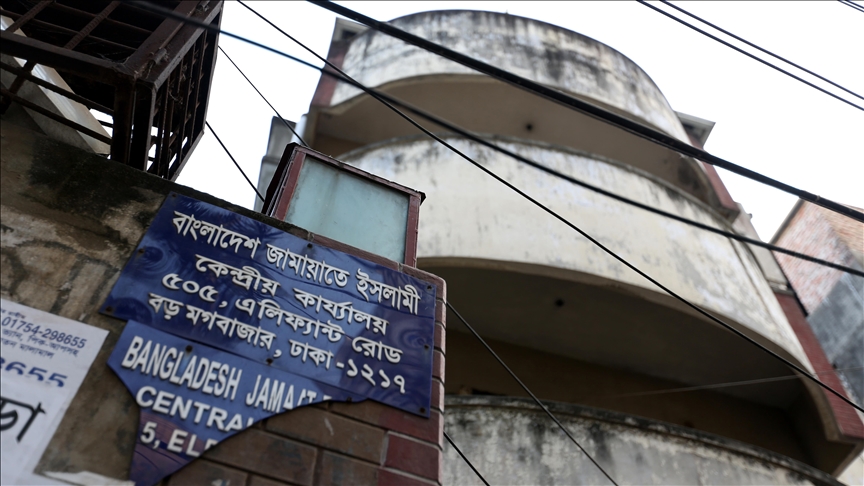Jamaat-e-Islami opens party office after over a decade as Bangladesh awaits transitional gov't
Hundreds of opposition leaders and activists being freed as Sheikh Hasina flees country after 15 years in power
 Jamaat-e-Islami headquarters after it shut down on December 15, 2013 at Dhaka Central Jail.
(Mertkan Morkoc / Anadolu Agency)
Jamaat-e-Islami headquarters after it shut down on December 15, 2013 at Dhaka Central Jail.
(Mertkan Morkoc / Anadolu Agency)
DHAKA, Bangladesh
The opposition Bangladesh Jamaat-e-Islami party opened its party office in Dhaka on Tuesday after more than a decade of being shut, as former Prime Minister Sheikh Hasina resigned and fled the country.
Hasina, 76, governed with what critics said “iron fist” and her rivals faced thousands of legal cases, which they claimed were politically motivated.
The religio-political party is said to have been part of the student protest movement that led to the downfall of Hasina, the daughter Sheikh Mujibur Rehman, the founding leader of Bangladesh.
Jamaat spokesperson Ataur Rahman Sarkar told Anadolu that the party's head office in Mogbazar neighborhood was forcibly shut in 2011, and was not allowed to reopen despite a court order.
Shafiqur Rahman, the head of Jamaat-e-Islami, entered the party’s head office late Monday.
The head office of the party's student wing, Bangladesh Islami Chhatra Shibir, was also reopened.
Bangladesh President Mohammed Shahabuddin on Monday held discussions with all parties, and announced that political workers, leaders and activists arrested since July will be freed. Hundreds of them were granted bail on Tuesday.
Khaleda Zia, the main opposition leader and head of Bangladesh Nationalist Party (BNP), is also set to be released. The 78-year-old and twice the prime minister of Bangladesh was sentenced to 17 years in prison for corruption in 2018.
The party was banned from politics for a second time on Aug. 1 over allegations that it carried out violence during the student protests over quotas in government jobs.
It was first banned in 1972 by Mujibur Rehman and was also barred from contesting elections in 2013.
Jamaat has been a key ally of the main opposition BNP since the 2001 national election.
At least six of the top Jamaat leaders were also hanged for crimes against humanity in the 1971 liberation war during Hasina's tenure.
Army chief Gen. Waker-uz-Zaman said a transitional government would be formed and the deaths in the course of the weeks-long protests would be investigated.
Organizers of the student protests have said Nobel Peace Prize laureate Muhammad Yunus should head the government.
Around 400 people were killed in weeks of protests. Scores were also killed in violence after Hasina fled.








